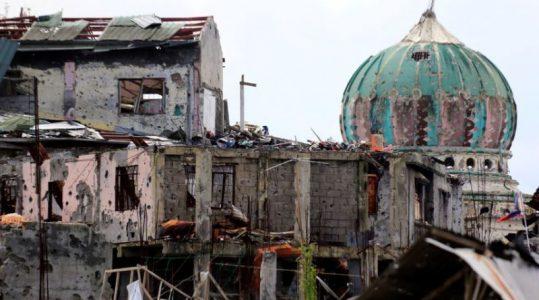
Terrorism suspected in fatal Philippines church bombings
At least 21 people have been killed and scores wounded by two bombings at a cathedral in the southern Philippines during mass, according to police and the military.
Security officials say the first bomb went off in or near the Jolo cathedral on Sunday, followed by a second blast outside the compound as government forces were responding to the attack.
The Philippine government said it would “pursue to the ends of the earth the ruthless perpetrators” behind the attacks.
The government will pursue the attackers “until every killer is brought to justice and put behind bars. The law will give them no mercy.”
It says authorities are now investigating the attacks.
Jolo island has long been troubled by the presence of Abu Sayyaf militants, who are blacklisted by the United States and the Philippines as a terrorist organisation because of bombings, kidnappings and beheadings.
Photos on social media showed debris and bodies lying on a busy street outside the Cathedral of Our Lady of Mount Carmel, which has been hit by bombs in the past. Troops in armoured carriers sealed off the main road leading to the church while vehicles were transporting the dead and wounded to the hospital. Some casualties were evacuated by air to nearby Zamboanga city.
“I have directed our troops to heighten their alert level, secure all places of worships and public places at once, and initiate pro-active security measures to thwart hostile plans,” said Defence Secretary Delfin Lorenzana.
The explosion occurred two days after the Commission on Elections proclaimed that the creation of a new Muslim autonomous entity in the southern region of Mindanao was ratified in a plebiscite held on January 21.
The creation of the Bangsamoro Autonomous Region of Muslim Mindanao was a key provision in a peace agreement signed between the Philippine government and the largest Muslim rebel group, the Moro Islamic Liberation Front, in 2014.
Although most of the Muslim areas approved the autonomy deal, voters in Sulu province, where Jolo is located, rejected it.
The province is home to a rival rebel faction that’s opposed to the deal as well as the Abu Sayyaf group, which is not part of any peace process.
Source: Canberra Times





